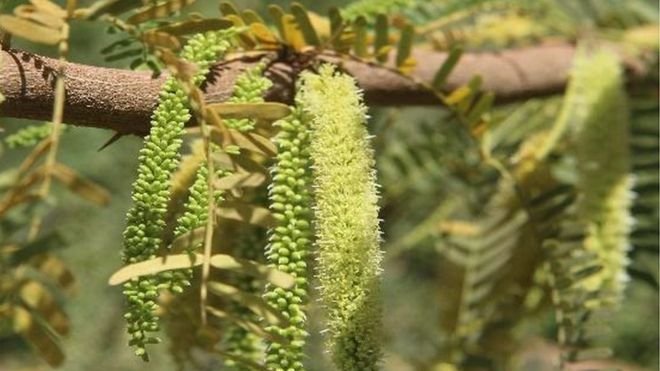
Gardening could be a powerful weapon against malaria, culling mosquito populations by cutting off their food supply, say researchers.
A team tested their idea in nine villages in the arid Bandiagara district of Mali, West Africa.
Removing flowers from a common shrub appeared to kill off lots of the older, adult, female, biting insects that transmit malaria.
Without enough nectar the "granny" mosquitoes starve, experts believe.
These Anopheles mosquitoes carry the malaria parasite in their salivary glands and pass it on to people when they bite and draw blood.
The infected person can then infect other younger, biting, female mosquitoes - which are looking for a rich blood meal as they become fertile and make eggs - because their blood now contains the parasite.
Shrubbery
In the Bandiagara district of Mali, there is one invasive plant that researchers believe is a feeding ground for malaria-transmitting mosquitoes.
The flowering Prosopis juliflora shrub is a bit of a horticultural thug and now occupies millions of hectares of the African continent.
Native to Central and South America, it was introduced into Africa in the late 1970s in an attempt to reverse deforestation and "green up" the desert.
Experts in Mali, along with researchers from the Hebrew University of Hadassah Medical School, Israel, and the University of Miami in the US, set up a horticultural experiment to see if removing the flowers from this plant might help kill off local mosquitoes.
They picked nine villages - six with lots of the flowering shrub and three without.
In three of the six villages, they hacked down the flowers.
They set light traps around all the villages to catch mosquitoes so they could see if the "gardening" had helped cull the insects.
Villages where they removed the flowers saw mosquito numbers collected in the traps fall - the total number of mosquitoes across these villages decreased by nearly 60% after removal of the flowers.
Importantly, the number of old female mosquitoes dropped to similar levels recorded in the three villages without any of the shrubs.
that's helpful thanks a lot for sharing and keep on posting ;)
thanks a lot.
Hi! I am a robot. I just upvoted you! I found similar content that readers might be interested in:
http://www.bbc.co.uk/news/health-40495958